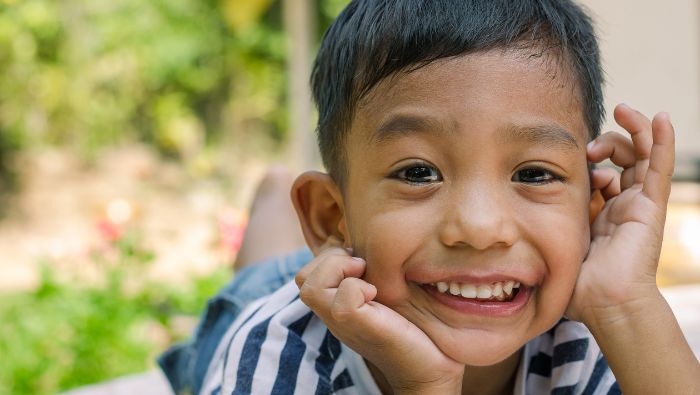The Kiwanis Club of Lalbandi’s program brings aid and awareness to a Nepal community.
By Erin Chandler
The Kiwanis Club of Lalbandi, Nepal, became aware of the challenges faced by people with autism in their community when a child in a club member’s family was diagnosed with autism spectrum disorder (ASD). Fortunately, members were able to call on the expertise of a fellow Kiwanian — Navaraj Banstola from the Kiwanis Club of Nilgiri — who leveraged his experience in healthcare to guide the child and their family through screening and treatment. But the club knew that not everyone would have the advantage of this kind of connection.
In fact, the Lalbandi club’s research indicated that four to five cases of ASD were diagnosed each day in one Kathmandu health clinic alone. On average, each of the six autism centers in Kathmandu Valley treats 450 children with ASD every month — a case load that is difficult to manage. Children in rural areas often can’t get treatment and therapy at all. Because of these obstacles and widespread misunderstanding of ASD, some children with autism stop attending school.
In March, the Kiwanis Club of Lalbandi received a club grant from the Kiwanis Children’s Fund for its autism spectrum disorder program, which will enable more kids with ASD and their families to receive screenings, diagnoses and support, along with treatments such as speech language therapy, play-based therapy, physical therapy, occupational therapy and nutritional therapy. The club has partnered with the six area autism centers and Bir Hospital for the program and received additional funding from government organizations, club members and the community.
“Overall, the autism project will serve as a catalyst for positive change within the club and the broader community, fostering understanding, support and empowerment for individuals with autism and their families,” says club president Kavita Upadhyay.
In the first steps of the program, specialists will train Lalbandi club members on screening for ASD and assisting in some therapy services. Those who conduct the screenings will refer kids to healthcare professionals as needed. The club will pay for therapies, medicines and nutritional supplements for children whose families can’t afford them, and club members will assist within the therapy centers.
On top of all this, a key part of the Kiwanis Club of Lalbandi’s program is to raise awareness and educate the public about ASD. Misconceptions about autism — defined by the World Health Organization as “a diverse group of conditions related to development of the brain…characterized by some degree of difficulty with social interaction and communication” — can be difficult to dispel.
“Many were reluctant to discuss the issue,” says Upadhyay. “Even now, there remains a lack of awareness of the implications of ASD, with many community members lacking information about the condition.”
She describes one mother attributing her child’s signs of autism to “past sins, believing it was a punishment from a higher power and therefore incurable. However, through our discussions, she came to understand that autism is not a divine punishment.”
In planning its program, the club learned that addressing autism is not just about helping children with ASD adapt to their communities; it’s about helping the community adapt to the kids.
“Engaging the community in the project fosters a sense of solidarity and collaboration,” Upadhyay explains.
She hopes the project will increase understanding and acceptance, leading to a more inclusive environment for people with autism and their families. The community formed by the project could even lead the way in amplifying the voices of people with ASD to advocate for more inclusive practices elsewhere.
“By working together toward a common goal,” she says, “community members become more invested in supporting individuals with autism and promoting their wellbeing.”
More about Kiwanis Childrens’ Fund grants
Kiwanis Children’s Fund grants improve the lives of children around the world by identifying projects like the Kiwanis Club of Lalbandi’s, which create a continuum of impact in a child’s life — one that spans their entire childhood and sets them up for a bright future. By funding projects that target the Kiwanis causes — health and nutrition, education and literacy, and youth leadership development — whether through a Kiwanis club’s local service project or a club’s partner, the Children’s Fund ensures that its grantmaking has the greatest possible impact.
If you are interested in extending the impact you and your club make beyond your community, give to the Children’s Fund or learn how your club can apply for a grant to help kids in your community.

